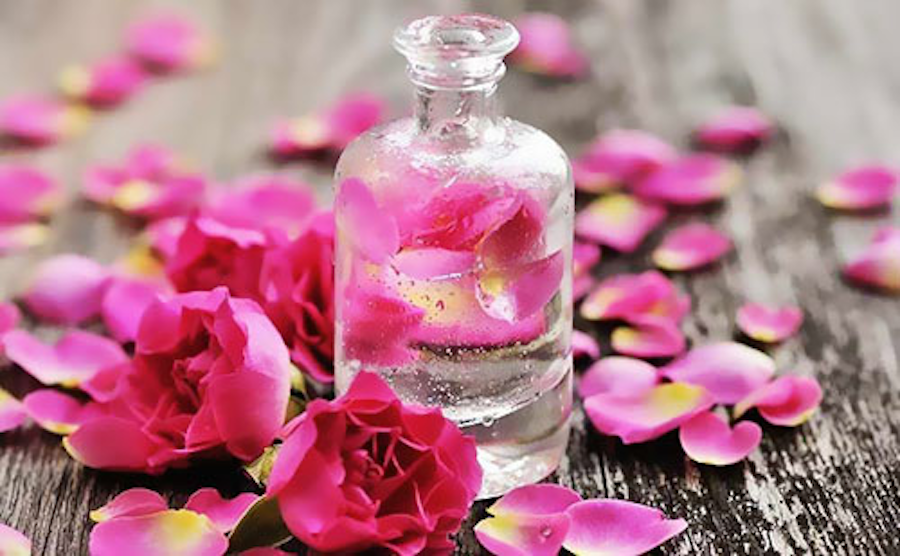
Rose, the mystical flower, has been taken as the symbol of love, beauty and divine perfection since ancient antiquity. Rose essence has been used in Persia since Zoroaster (circa 1000 BC) in cooking, medicine and various ceremonies. Washing the hands and face with rosewater for purification, sprinkling rose water on one another, drinking rose syrup, burning rose incense featured the various ethnic, cultural, religious ceremonies. During the middle ages, the rose was cultivated in monastery courtyards and was used for incense and medicinal purposes. It is been said that the finest rose water and oil is extracted from what is commonly known today as the Bulgarian and the Turkish rose. In Greco-Roman mythology, the story has it that the rose was originally white. But when Adonis was injured, with each teardrop Aphrodite shed by his side, grew a rose and it turned to red with the blood of Adonis. In Rome, rose is the flower of Venus and it adorns the feasts. The Romans celebrate “ Rosalia” every year in May and bouquets of roses are presented to the spirits of the dead.
In Christian iconography, rose is the symbol of “Mary”, venerated as the Queen of heaven and earth. “Rosa Mystica” is her title in the Catholic devotion, and the celestial rose featured in the stained glass windows of gothic cathedrals is dedicated to Mary.
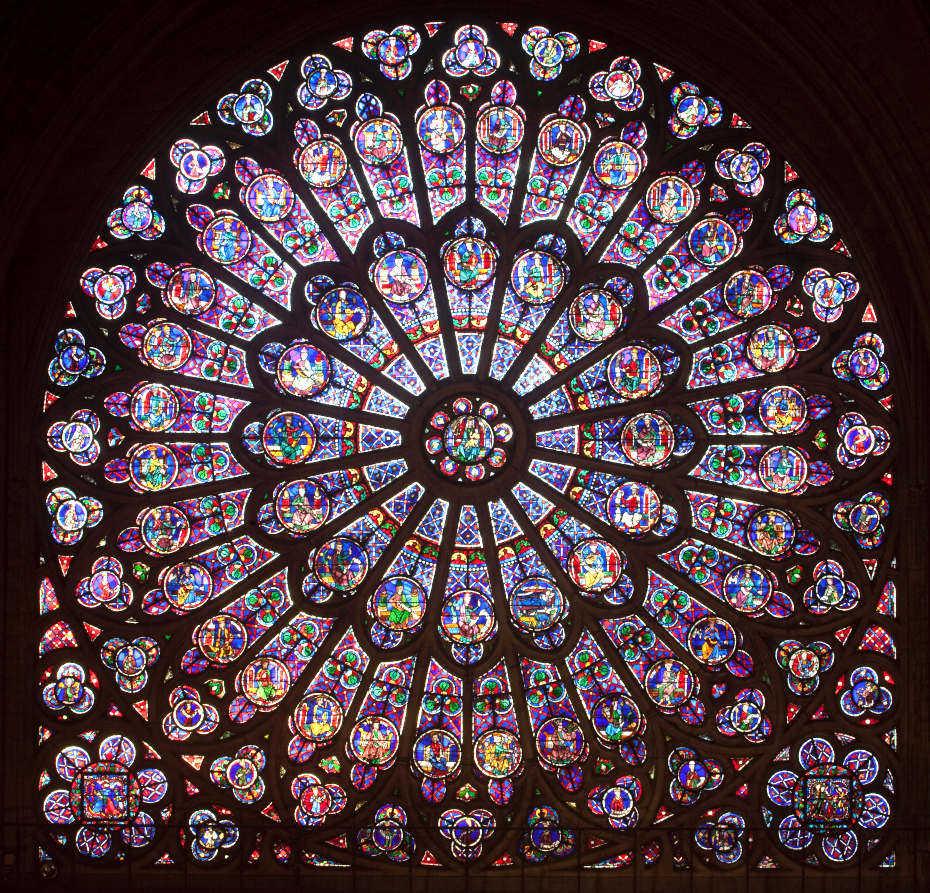
The image of the red rose has traditionally come to represent the divine passion of Christ and the love of the martyrs.
Dante (1265 – 1321), in his timeless Divine Comedy recounts his phenomenal voyage to the other world and describes the Empyrean. It is the realm of the Divine which majestically rises above all heavens. It consists of pure light, and stands beyond time and space. He describes the Empyrean as an immense white rose, imbued with light and divine love.
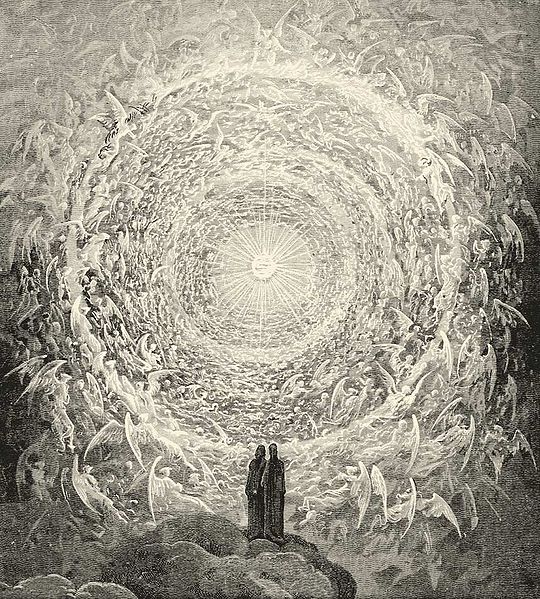
There he sees the close companions of God, archangels, saints, and saved ones, systematically placed around the center in circular forms representing the petals of the rose. The rose, bearing the manifestation of eternal divine love, opens up and unveils petal by petal, emanating its celestial fragrance.
In Sufism, the mystical dimension of Islam, rose is a reflection of divine beauty and perfection. It opens up only with the touch of divine light. Rumi (1207-1273), making an analogy to the rose describes his own state :
What was said to the rose that made it open, was said to me, here in my chest.
Life and the fragrant essence of the rose are endowed by the Divine and it only gets to full bloom with the effect of divine light.
Hafez (circa 1320-1389) known with his mastery in the melodic feature and profoundness of his poems, writes about the daring beauty of the rose. He praises that which makes the rose undertake the stages of blossoming and emanate its full fragrance all the while knowing that she will fade away one day.
How did the rose ever open its heart
and give to this world
all its beauty ?
It felt the encouragement of light
against its being.
Otherwise,
we all remain too frightened.
Like the maturation phases of the rose, the maturation of the human soul takes place in the ephemeral body, and they both need courage to accomplish it.
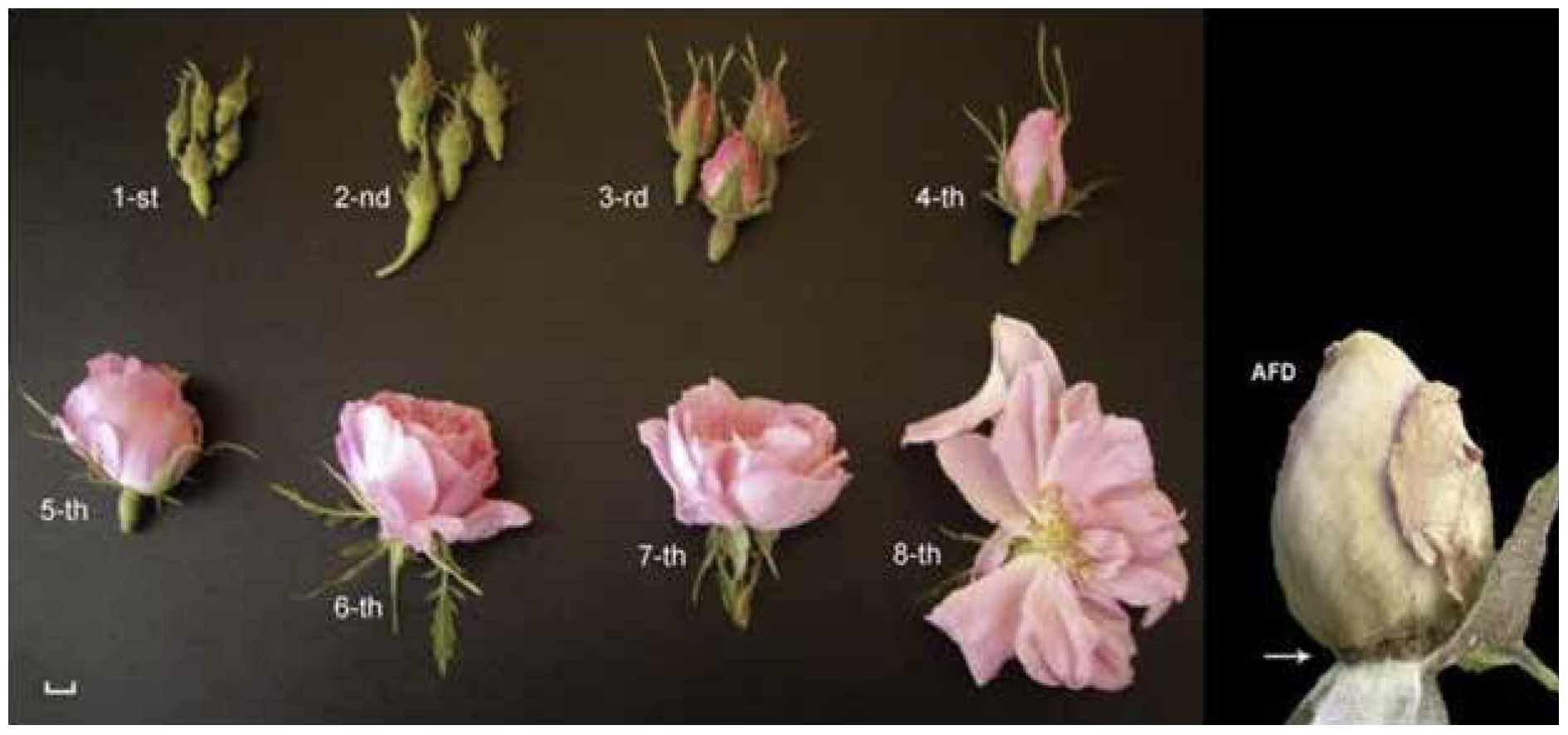
In mystical Persian poetry, the well-known story recounts the nightingale’s incessant love for the rose. Moved by the divine beauty of the rose, the nightingale gets intoxicated, and thereafter chants his best love songs perched on the rose branch. On the hopeless love of the nightingale, Hafez wrote :
The nightingale with drops of his heart’s blood
Had nourished the red rose, then came a wind…
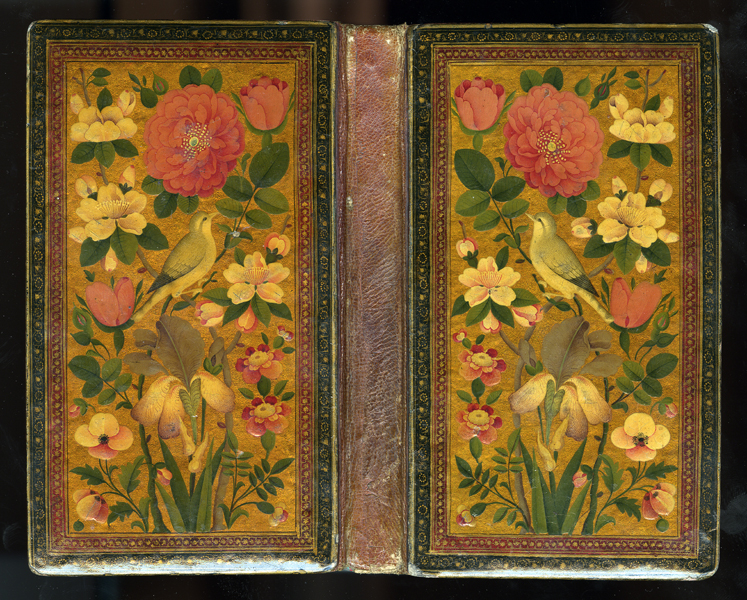
He elucidated the love-sick bird’s complaint about the fleeting nature of the rose and the rose’s reply :
The bird of gardens sang unto the rose,
New blown in the clear dawn: “ Bow down thy head !
As fair as thou within the garden close,
Many have bloomed and died.” She laughed and said
“That I am born to fade grieves not my heart
But never was it a true lover’s part
To vex with bitter words his love’s repose.”
On the ecstasy and mystical love evoked by the rose, Sa’adi (1210- 1291) wrote in his book of lyrical stories Gulistan (The Rose Garden) :
I recalled that when I reach the rose bush, I would fill the skirt of my robe with rose, the gift of the companions. But when I arrived, the smell of the flower made me so drunk that I lost my robe.
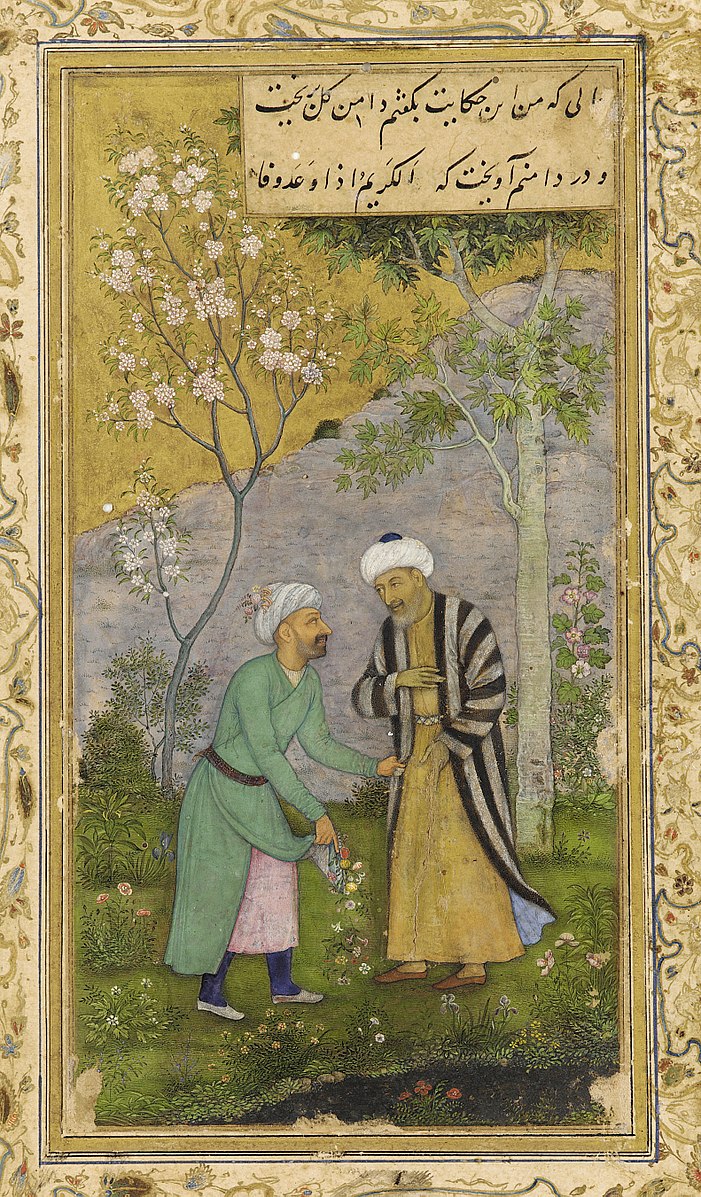
Permeated with rose essence, he alludes to the insignificance of the bodily robe.
Then one finds in the soul-stirring verses of Rumi, the imperishable essence of the rose :
When the roses are gone and the garden is ruined, where do you find the perfume of the rose ? In the rose water…
Duygu Bruce







